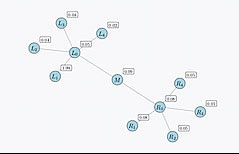





::: Home
::: CHEP-EHP Fellows
::: Books
::: News
::: Senior Fellows
::: Joint Center for History and Economics
::: Abdul Latif Jameel Poverty Action Lab (JPAL)
Ellen Muir
 |
Email: emuir@fas.harvard.edu Personal website: https://ellenmuir.net/
|
Ellen Muir is an economist whose work focuses on a variety of topics in microeconomic theory, market design and industrial organization. She is currently a Prize Fellow in Economics, History, and Politics at Harvard University and a postdoctoral fellow at J-PAL at MIT. She will be joining the Applied Economics Group at MIT Sloan as an Assistant Professor in 2024. Ellen’s research involves developing new tools in game theory, contract theory and mechanism design to study the design and regulation of markets and firms. Her work touches on many classic problems in economics relating to firm behavior in monopoly and monopsony markets; market power and antitrust policy; the optimal design of contracts and property rights; the implications of resale and secondary markets; and price and minimum wage regulation. Her work also examines a variety of contemporary applications, including how consumers and producers are affected by large online platforms; the market power of vertically integrated tech giants and the antitrust implications of their upstream and downstream operations; pricing algorithms and the potential for autonomous market participants to collude; and how the design of dynamic markets (such as financial markets) influences market thickness and liquidity. Ellen received a PhD in Economics in 2022 from Stanford University and a PhD in Mathematics and Statistics in 2018 from the University of Melbourne, where she also completed a Master of Science and Bachelor of Science. She was previously a postdoctoral researcher in the School of Mathematics and Statistics at the University of Melbourne and a member of the Australian Research Council Centre of Excellence for Mathematical and Statistical Frontiers. |
|